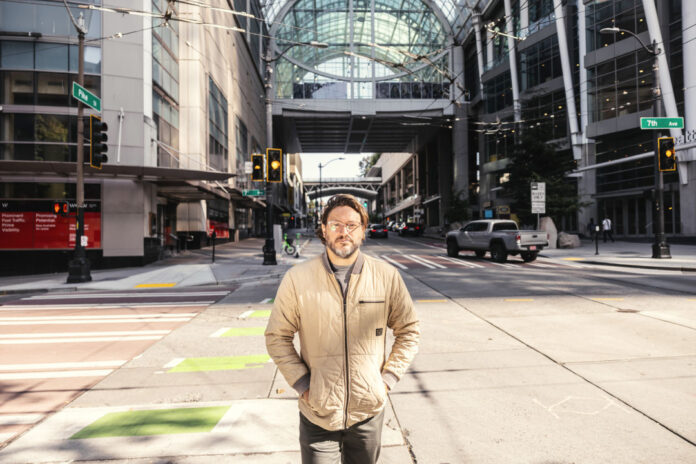This post was originally published on this site
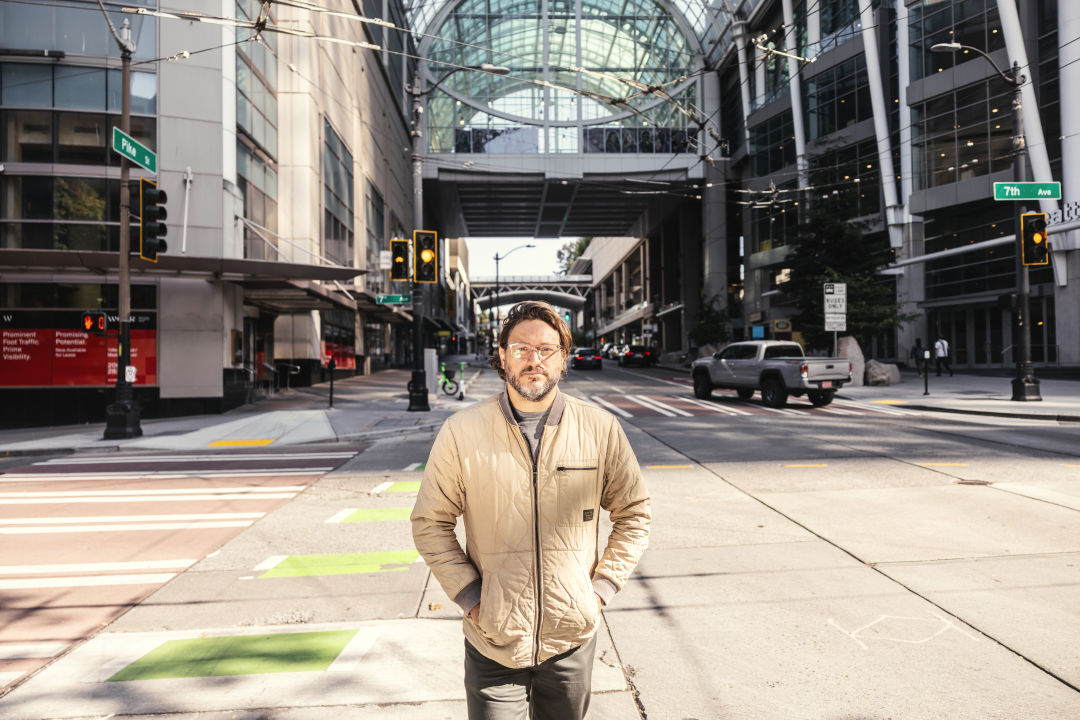
Ian Bell was not in Seattle for the WTO protests in 1999. But he assembled his film out of hundreds of hours of archival footage.
In the opening moments of Ian Bell’s astounding, purely archival documentary WTO/99, we meet young people on their way to Seattle to peacefully protest the upcoming World Trade Organization (WTO) Ministerial Conference. The ensuing days will be anything but peaceful. Instead, as we witness in countless amateur videos and news broadcasts stitched delicately together by Bell, they will be defined by now-infamous clashes between protesters and police.
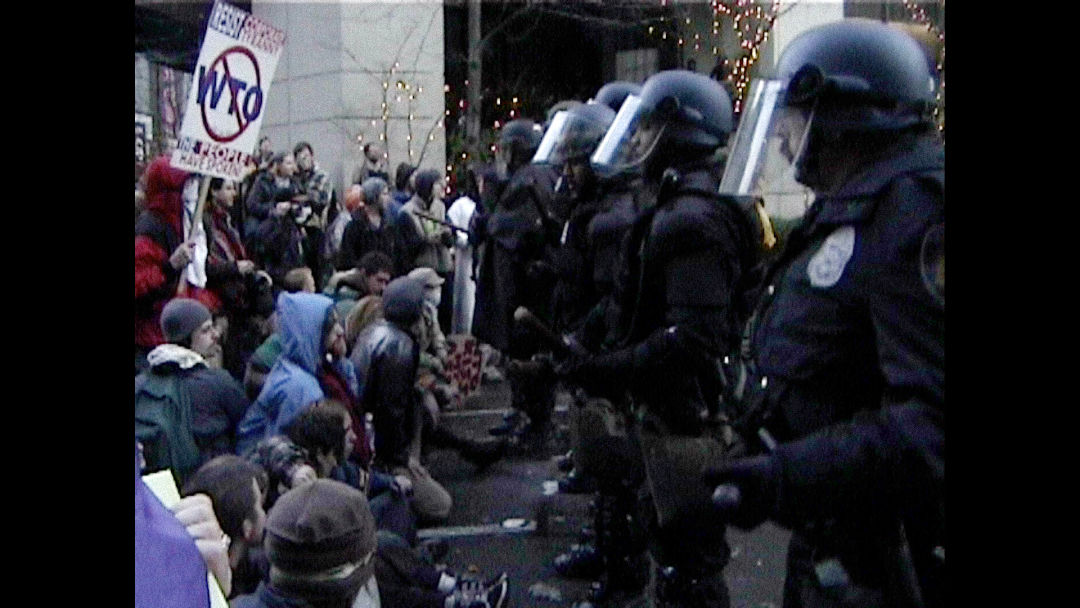
Bell discovered that the violence in 1999 began not with protesters themselves but with police escalation.
However, as Bell’s restrained yet riveting documentary explores in meticulous detail, the reason for the violence is not the protesters, but escalations by the police. The more the film goes on, the more we see how the actual issues at hand—concern protesters had about trade’s impact on everything from the environment to inequality—become swallowed up in clouds of tear gas.
The film is a time capsule and a sneak preview for what the coming decades of protest would bring in America. It will look familiar to anybody who watched the news in 2020. Are protesters inherently violent, or is violence the result of police tactics and crackdowns?
For Bell, the answer became clear while he was making this film.
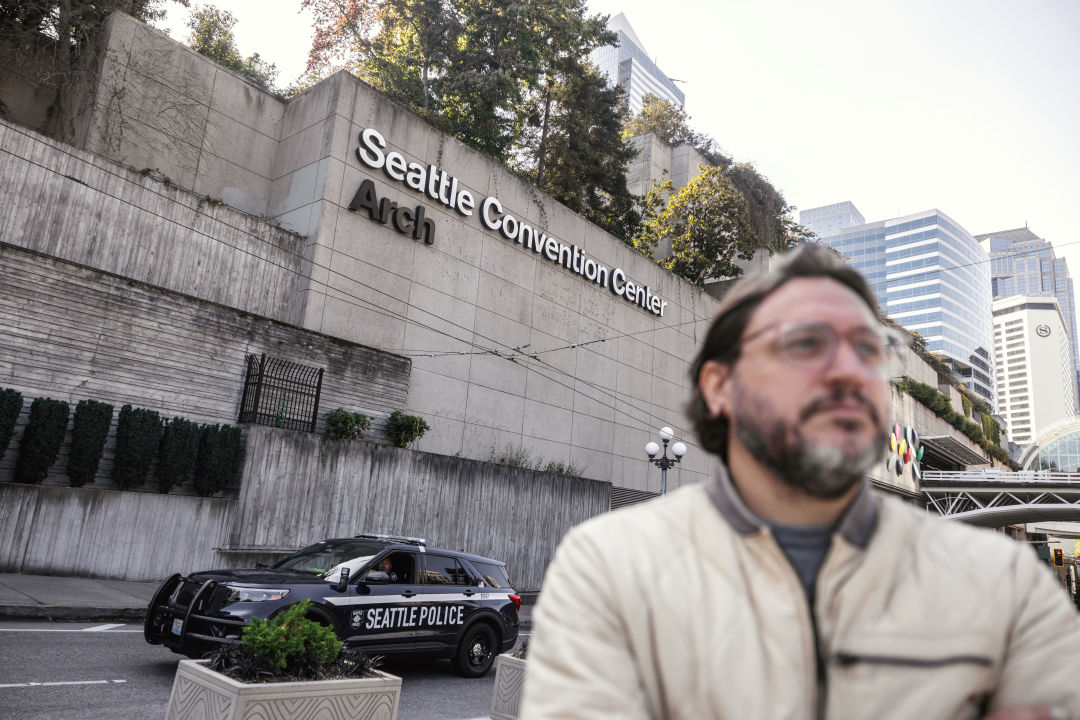
Bell previously did archival documentary work for Vice.
“The presence of the police is the guarantee that things will escalate,” Bell says. “The violence tends to spring up from that point of friction. What’s interesting about the film, as we were putting it together, we started to get notes from people that ‘Oh, the action happens too fast.’ It’s like, yeah, isn’t that crazy they just start gassing people that fast?”
A local Seattle filmmaker who previously did archival documentary work for Vice, Bell wasn’t present for the WTO protests. Instead, he learned about them while a world away in Japan via letters he received from a friend. However, sitting at a coffee shop in Seattle all these years later, he says he always wanted to take this on as a bigger project with the intention of capturing an authentic snapshot of the time while still offering something new.
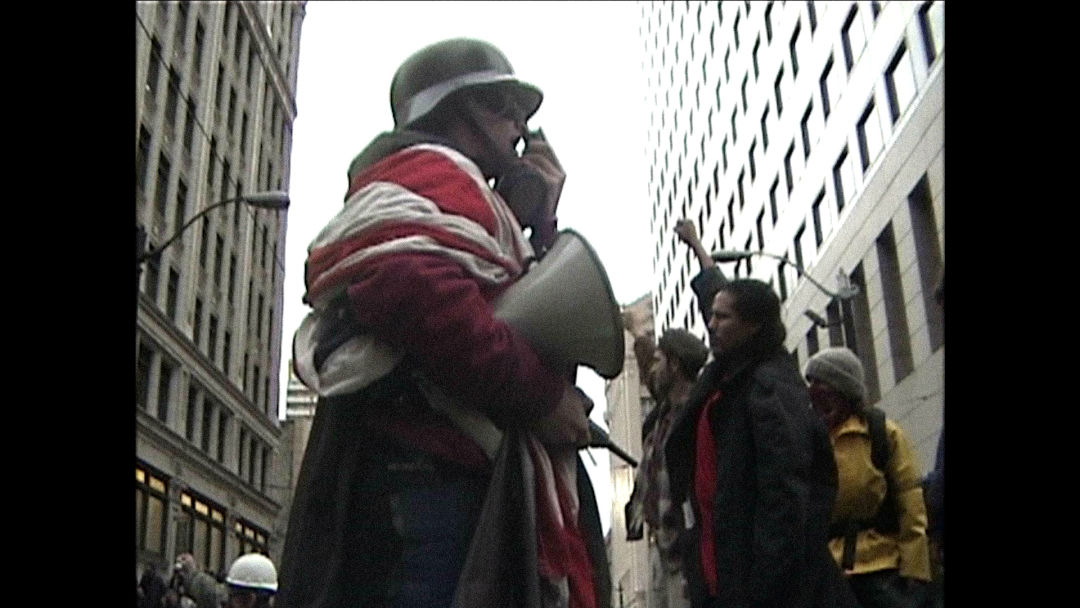
“I want to make a film that the people in it will find honest, but I don’t want it to be of the movement,” Bell says, explaining how he connected with various sources to get the critical footage they needed and also spoke with those who attended to hear their experiences.
Danielle Henderson Evans was one of those people. She says that she attended the protests at 19 and remembers experiencing slight irritation from the use of tear gas before quickly retreating to a safer location. She says that she was a student who had attended over concerns about the environment and found herself face-to-face with “robotic” police, something she described as being “uncanny” in retrospect. Having seen an early cut of the film she says that the documentary fully and authentically captured what happened that week.
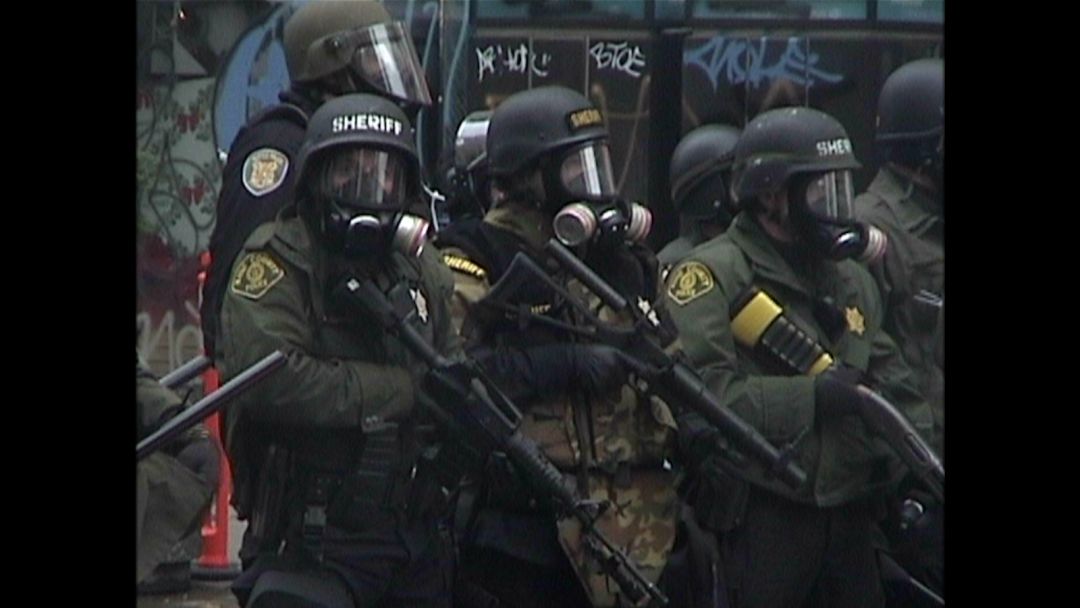
These images are not from 2020.
“When I was there as a teenager, it was just like ‘Something big is happening in the city and I know what side I’m on.’ When I watched the documentary and saw the footage of people talking about what was going on, I saw the gravity of it more and the details of it more,” Evans says. “Watching the documentary, you can see how something really changed.… Some kind of Pandora’s box had been opened and could not be closed again.”
Bell isn’t the first to take on this history. There was the critically panned Vancouver-shot 2007 narrative film Battle in Seattle. But he has now made the definitive portrait—a film that cuts deeper than any other has to date. While Bell says that the documentary was rejected by the local Seattle International Film Festival when he submitted it for their most recent festival, it’s played to great acclaim at festivals like True/False and the Vancouver International Film Festival with plans to screen it wider locally.
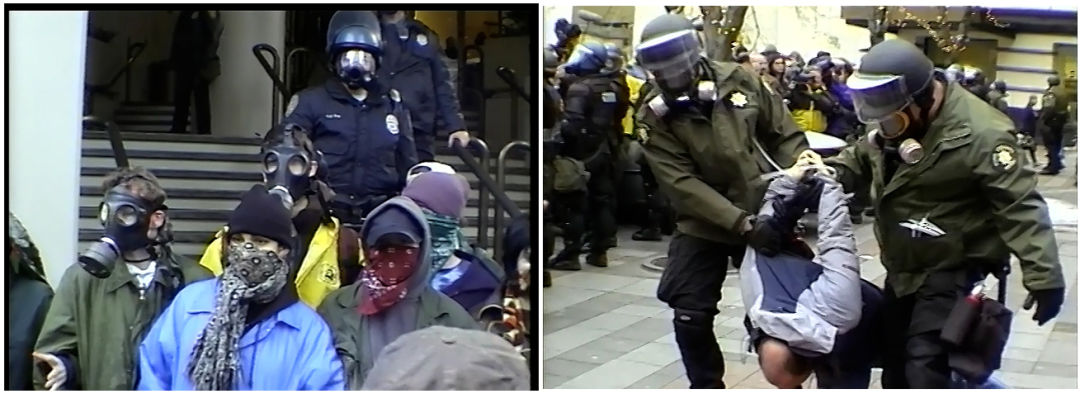
Though the WTO protests will be familiar to anyone with knowledge of Seattle history, seeing the events unfold as fully and patiently as they do in the film is striking, especially as you get the sense that the violent police crackdown was primarily intended to send a message to not do this again.
“Just the blocking of the meeting is reason enough to use violent force against people,” Bell says, pointing to a section where the documentary focuses on when President Bill Clinton came and gave a long speech where he concluded that there would be no disruptions that prevented people from attending meetings. “At the end of that whole thing, he gives you the reason.”
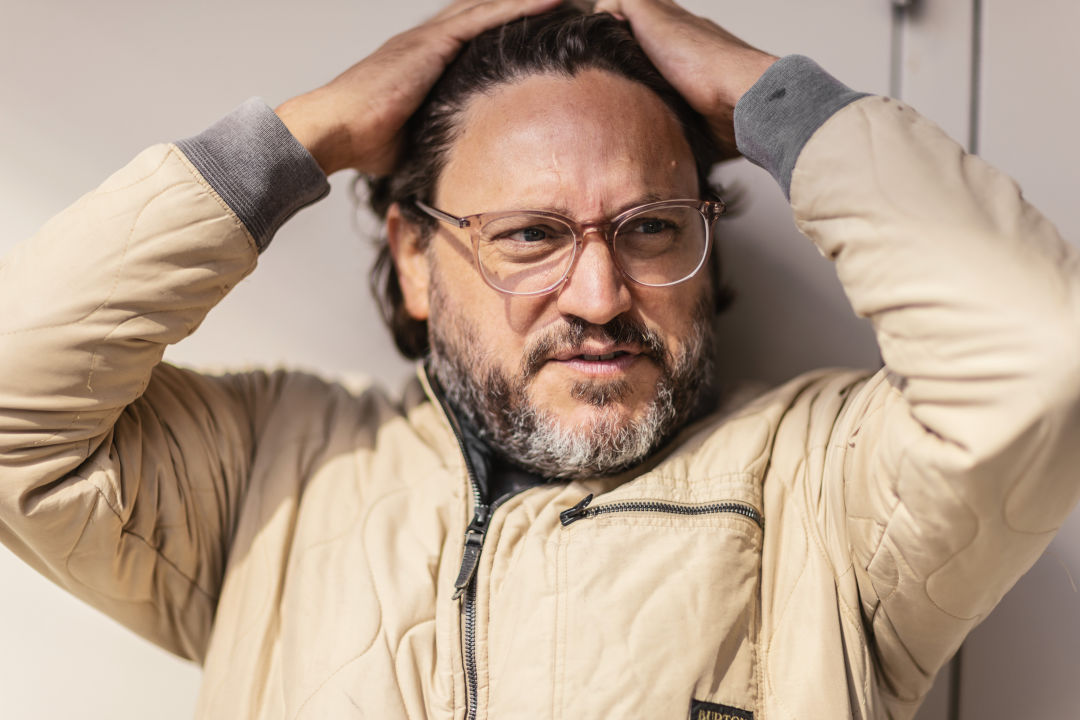
When I ask him whether he thinks this documentary will have an impact, Bell pauses for quite a while. Finally, he says he does hope it can provide people with a greater understanding of history repeating itself.
“In little ways, the world gets nudged an inch that way, an inch that way, every day. If I made a documentary about the making of Frasier, that would be fascinating, but I’m certain that wouldn’t change anything,” Bell says, while acknowledging that the “jury is still out” on if a film can change the world. However, he says with each passing day, he feels the film’s urgent relevance only grows.
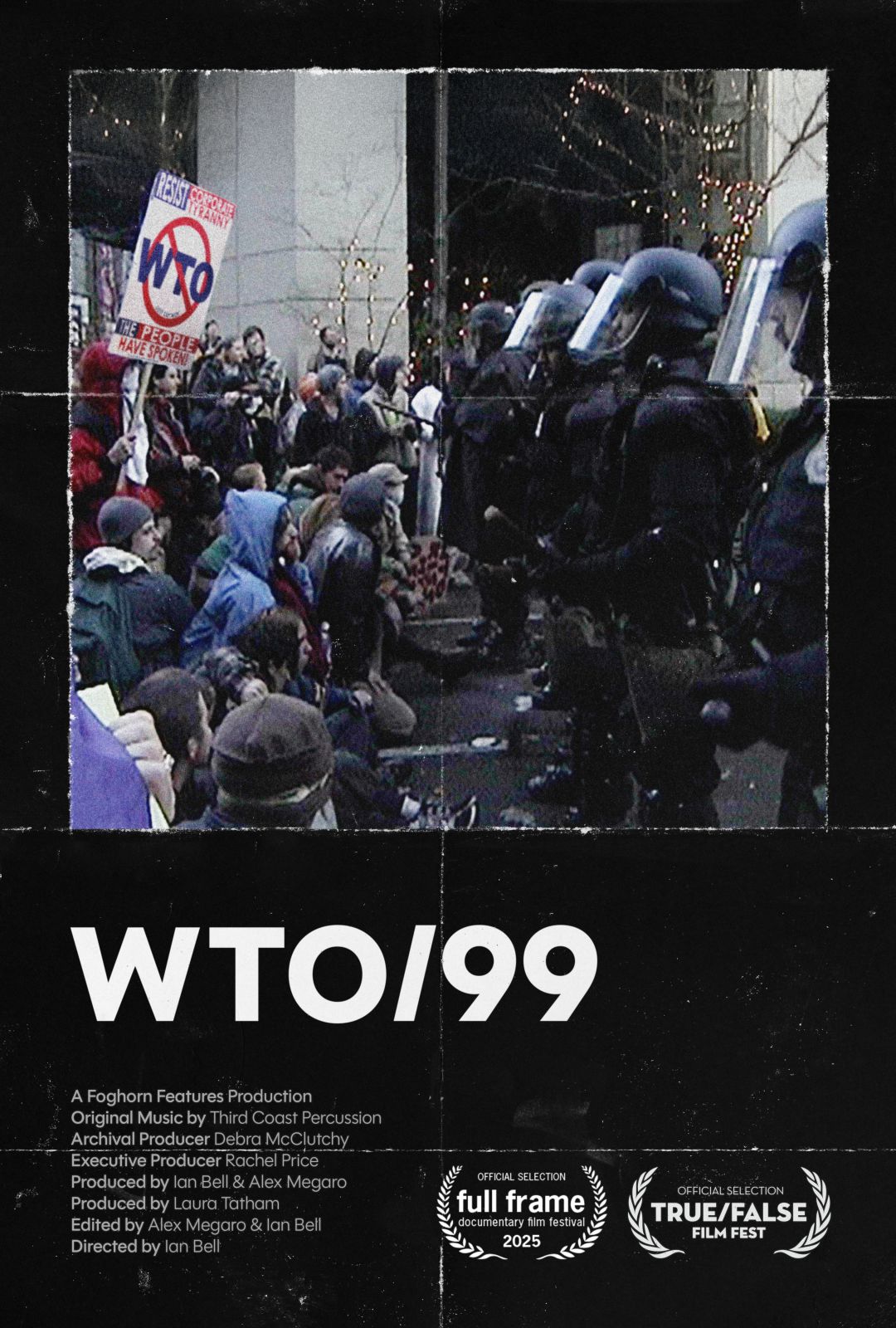
“We’re so completely divorced from our own history and we gain a lot from knowing how other people handled these similar circumstances, but also from knowing we’re not alone,” Bell says. “If you’re out in the streets trying to shift local policy or national policy or some police action is taking place, it probably helps you go a few more hours or to try something new knowing that it’s been done before. You’re not gonna be the first and you’re not gonna be the last.”
WTO/99 screens at the Northwest Film Forum on November 6, and then again December 5–7 and 13 & 14; at the Bainbridge Island Film Festival on November 8 & 9; and at SIFF Cinema Uptown on November 23 for the Seattle Film Critics Society Pacific Northwest Award screening series.












